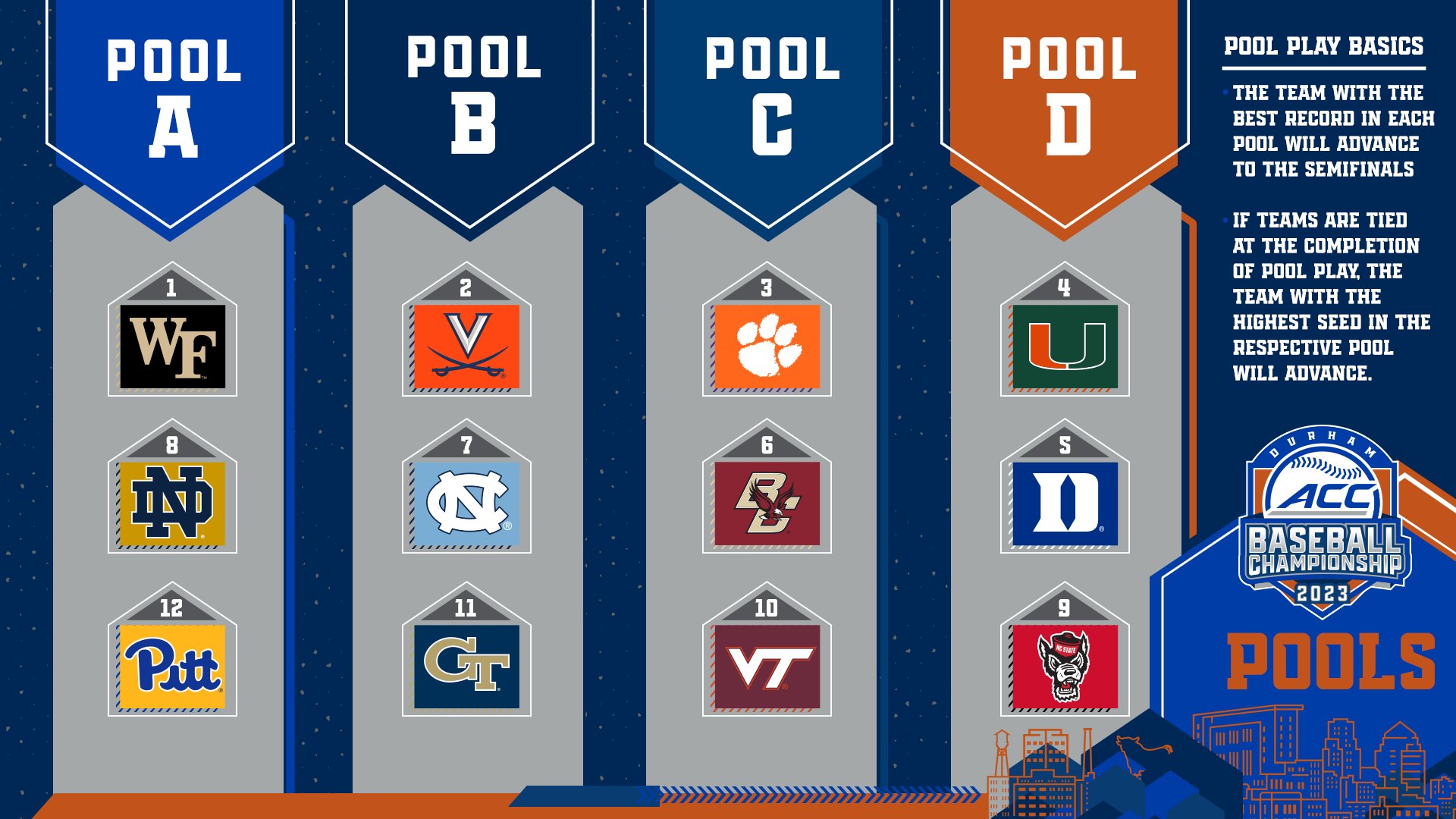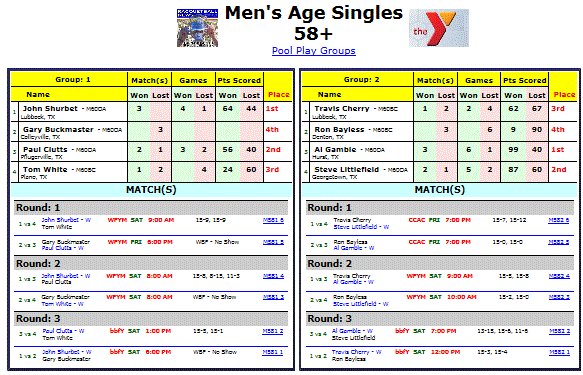Pool play in baseball involves teams competing in groups during a tournament. Teams play round-robin games to determine rankings.
Pool play is common in baseball tournaments, offering a fair and balanced competition structure. Teams are divided into pools or groups and play against each other in a round-robin style. This ensures each team faces every other team in their pool, allowing for an accurate assessment of their skills and performance.
The results from these games determine the rankings within each pool, which are then used to seed teams for the knockout stages or final rounds. Pool play promotes competitive balance and ensures every team has multiple opportunities to advance, making it a popular choice for organizers and participants.
History Of Pool Play
Pool play in baseball is a system where teams are divided into groups, or “pools,” and play against each other. This structure ensures that every team gets a fair chance to compete. Understanding the history of pool play helps to appreciate its significance in baseball tournaments.
Origins
The origins of pool play can be traced back to early organized sports. It was first used to ensure that each team had an equal chance to compete. It was crucial in reducing unfair advantages. Pool play began in smaller, local tournaments before reaching bigger stages.
Key points in the early history of pool play include:
- First used in local, informal baseball games.
- Adopted by amateur baseball leagues in the early 1900s.
- Provided a structured format for competitions.
In the early days, teams were often grouped based on geographical locations. This minimized travel expenses and made tournaments more accessible. As pool play gained popularity, it laid the foundation for more formal baseball tournaments.
Evolution In Baseball Tournaments
As baseball tournaments grew, pool play evolved to meet the needs of larger competitions. Major youth tournaments adopted the format. This included the Little League World Series and other national championships.
Significant changes in the evolution of pool play:
| Period | Changes |
|---|---|
| 1950s | Standardized pool play rules introduced. |
| 1980s | Expansion to international tournaments. |
| 2000s | Introduction of digital tracking for games and stats. |
Major baseball tournaments began using pool play to ensure fairness. This allowed smaller teams to compete against larger, more established teams. The format also provided more games for each team, maximizing participation and exposure.
Today, pool play is an essential part of baseball tournaments. It ensures a balanced and fair competition. This format has proven successful in promoting sportsmanship and competitive spirit.

Credit: twitter.com
Format Of Pool Play
Pool play is a standard format in baseball tournaments. It divides teams into groups or “pools” to ensure they play multiple games before elimination rounds. Understanding the pool play format is crucial for teams, coaches, and fans. Let’s dive into the details.
Number Of Teams
In pool play, the number of teams in each pool can vary. The tournament organizers decide this based on the total number of teams participating. Each pool usually has 3 to 6 teams. A typical tournament might have multiple pools, each with an equal number of teams.
For example, a tournament with 12 teams could have three pools of 4 teams each. Here’s a table to illustrate:
| Number of Teams | Pools | Teams per Pool |
|---|---|---|
| 12 | 3 | 4 |
| 16 | 4 | 4 |
| 20 | 4 | 5 |
Smaller pools mean fewer games per team, while larger pools increase the number of games. This affects scheduling and matchups. The number of teams in each pool also impacts the tournament’s duration.
Scheduling And Matchups
Scheduling is crucial in pool play. Each team plays against every other team in its pool. This ensures fair competition and gives every team an equal chance to advance. The number of games each team plays depends on the number of teams in the pool.
For instance:
- 3-team pool: Each team plays 2 games.
- 4-team pool: Each team plays 3 games.
- 5-team pool: Each team plays 4 games.
Matchups are often determined by a random draw or pre-set criteria. The schedule usually includes round-robin play, where each team faces all others in its pool. This method ensures all teams have an equal opportunity to demonstrate their skills.
Here’s a sample schedule for a 4-team pool:
| Day | Game |
|---|---|
| 1 | Team A vs Team B |
| 1 | Team C vs Team D |
| 2 | Team A vs Team C |
| 2 | Team B vs Team D |
| 3 | Team A vs Team D |
| 3 | Team B vs Team C |
Consistency in scheduling ensures no team has an unfair advantage. Properly scheduled matchups are key to a successful pool play format in baseball tournaments.
Advantages Of Pool Play
Pool play in baseball involves teams being divided into smaller groups or “pools” during a tournament. Each team plays against all other teams in their pool. This format offers several advantages, enhancing the tournament experience for players and spectators. Let’s dive into the key benefits of pool play.
Increased Competition
Pool play boosts competition by ensuring each team faces multiple opponents. It leads to more dynamic and unpredictable games. Here are some benefits:
- Diverse Opponents: Teams play against various opponents, enhancing their skills and strategies.
- Consistent Engagement: More games mean players stay engaged and active throughout the tournament.
- Learning Opportunities: Teams learn from each game, improving performance and teamwork.
Additionally, pool play offers more opportunities for teams to showcase their talents. Fans enjoy more exciting and varied matchups, adding to the overall thrill of the tournament.
| Aspect | Benefit |
|---|---|
| Diverse Opponents | Improves skills and strategies |
| Consistent Engagement | Keeps players active |
| Learning Opportunities | Enhances performance |
Overall, pool play creates a challenging and dynamic environment, pushing teams to perform their best.
Fairness In Tournament
Pool play ensures a fair and balanced tournament structure. Each team has an equal chance to advance. Here’s how:
- Equal Opportunities: Every team plays the same number of games, ensuring fairness.
- Balanced Matchups: Teams are grouped based on skill levels, creating fairer contests.
- Clear Advancement Criteria: Clear rules for advancing to the next round make the process transparent.
This format prevents early elimination due to a single loss. Teams can recover from a bad game and still compete for the title. It also reduces the impact of luck, focusing on consistent performance.
For example, in a traditional knockout tournament, one bad game can end a team’s chances. In pool play, teams have multiple games to prove their worth. This makes the tournament fairer and more enjoyable for everyone involved.
The fairness of pool play makes it a preferred choice for many baseball tournaments, ensuring a level playing field for all teams.

Credit: www.r2sports.com
Disadvantages Of Pool Play
Pool play in baseball is a system used in tournaments where teams are divided into pools and play against each other. While this method can be exciting, it comes with certain disadvantages. These drawbacks can affect team performance and tournament outcomes. Let’s explore some of these disadvantages.
Possibility Of Tiebreakers
One major disadvantage of pool play is the possibility of tiebreakers. Tiebreakers can be confusing and sometimes unfair. They occur when two or more teams have the same win-loss record. In such cases, organizers use specific rules to determine which team advances. These rules may include:
- Run Differential
- Head-to-Head Results
- Total Runs Scored
These criteria can lead to unexpected results. For instance, a team with a strong defense but few runs might lose out. Here’s a table to illustrate how tiebreakers can affect teams:
| Team | Wins | Losses | Run Differential |
|---|---|---|---|
| Team A | 3 | 1 | +10 |
| Team B | 3 | 1 | +5 |
| Team C | 3 | 1 | -2 |
In this example, Team A advances due to the highest run differential, despite all three teams having the same record. This can sometimes feel unfair to teams and fans alike.
Impact On Team Fatigue
Another significant disadvantage of pool play is the impact on team fatigue. Teams often play multiple games in a short period. This can lead to physical and mental exhaustion. Fatigue can affect player performance, increasing the risk of injuries.
Here are a few reasons why pool play can be tiring:
- Short Recovery Times
- Back-to-Back Games
- Travel Between Venues
Let’s break down how fatigue impacts different aspects of the game:
| Aspect | Impact of Fatigue |
|---|---|
| Batting | Reduced reaction times, lower batting averages |
| Pitching | Decreased pitch velocity, higher risk of arm injuries |
| Fielding | Slower movements, more fielding errors |
Fatigue not only affects individual players but also the overall team performance. Coaches need to manage their rosters smartly to keep players fresh. Proper rest and recovery are crucial for maintaining high performance throughout the tournament.
Strategies In Pool Play
Pool play in baseball is a format where teams compete in a round-robin style within a pool or group. This method helps determine the strongest teams for advancement to the later stages of a tournament. Strategies in pool play are crucial for maximizing a team’s chances of success. Proper planning and smart tactics can make the difference between advancing and going home early.
Team Rotation
Team rotation is essential in pool play to keep players fresh and perform well. Coaches often rotate players to ensure everyone stays rested and ready for upcoming games. This strategy involves several key points:
- Pitcher Rotation: Rotating pitchers helps prevent fatigue and injury. By using different pitchers, teams can maintain strong pitching throughout the tournament.
- Position Changes: Switching players between positions can give key players rest while keeping the defense strong. For example, moving a shortstop to the outfield for a game can help manage energy levels.
- Bench Utilization: Giving bench players game time keeps the entire roster engaged and prepared. This also allows starters to rest and recover.
Here’s a simple rotation table for a team:
| Game | Starting Pitcher | Key Position Changes |
|---|---|---|
| 1 | Pitcher A | Shortstop to Outfield |
| 2 | Pitcher B | Outfield to Shortstop |
| 3 | Pitcher C | Third Base to Catcher |
Game Management
Effective game management in pool play involves making strategic decisions during the game to optimize performance. Coaches must be adept at reading the game and making adjustments. Key aspects include:
- Pitch Count Monitoring: Keeping track of the number of pitches thrown by each pitcher prevents overuse and maintains arm health.
- Defensive Shifts: Adjusting defensive alignments based on hitters’ tendencies can improve fielding efficiency and reduce runs allowed.
- Substitutions: Smart substitutions can keep the team energized and responsive to changing game situations.
In-game management also entails:
- Reading the Opponent: Observing the opponent’s strengths and weaknesses helps in making informed tactical decisions.
- Adjusting Batting Order: Changing the batting order based on player performance and matchups can maximize scoring opportunities.
- Timeout Usage: Calling timeouts at critical moments can help regroup the team and provide strategic guidance.
Effective game management requires preparation, observation, and quick decision-making. Coaches who master these elements can significantly enhance their team’s performance in pool play.

Credit: diamondnation.com
Famous Pool Play Moments
Pool play in baseball involves teams competing in a round-robin format, where each team plays against every other team in their group. This phase often leads to memorable moments and nail-biting excitement. Famous pool play moments have shaped the history of baseball and left fans in awe. Let’s dive into some of these iconic instances.
Key Matches
Pool play in baseball has showcased some unforgettable key matches. These games often feature thrilling performances, legendary players, and dramatic finishes.
One of the most memorable matches was during the 2006 World Baseball Classic. The game between the USA and Japan had fans on the edge of their seats. The match ended in a controversial decision that sent the USA to the semi-finals.
Another iconic game was in the 2017 Little League World Series. The team from Texas faced off against North Carolina in a high-stakes match. Texas won 6-5 in extra innings, creating a lasting memory for all who watched.
Here are some key matches in pool play history:
| Year | Teams | Score | Event |
|---|---|---|---|
| 2006 | USA vs. Japan | 4-3 | World Baseball Classic |
| 2017 | Texas vs. North Carolina | 6-5 | Little League World Series |
| 2013 | Puerto Rico vs. Italy | 4-3 | World Baseball Classic |
Surprising Outcomes
Pool play often leads to surprising outcomes that no one expects. These moments add to the excitement and unpredictability of the game.
Italy shocked the world in the 2013 World Baseball Classic by beating Mexico 6-5. This win catapulted Italy into the spotlight and demonstrated the unpredictable nature of pool play.
Another surprising outcome occurred during the 2015 Pan American Games. The Canadian team defeated the heavily favored USA team 7-6. This unexpected win was a proud moment for Canadian baseball and thrilled fans nationwide.
Some of the most surprising outcomes in pool play history include:
| Year | Teams | Score | Event |
|---|---|---|---|
| 2013 | Italy vs. Mexico | 6-5 | World Baseball Classic |
| 2015 | Canada vs. USA | 7-6 | Pan American Games |
| 2018 | Korea vs. Japan | 5-4 | Asian Games |
These surprising outcomes create lasting memories and show the true spirit of baseball. Fans love the unexpected twists and turns that pool play brings to the sport.
Frequently Asked Questions
What Is Pool Play vs. Bracket Play?
Pool play involves teams competing in groups, with results determining seeding. Bracket play follows, featuring knockout rounds leading to a champion.
What Is The Format For Pool Play?
Pool play format typically involves teams divided into groups. Each team plays against all other teams in their group. Top teams advance to the next stage based on performance.
What Does It Mean To Be A Pool Player In Baseball?
A pool player in baseball is a versatile player who can play multiple positions. They provide flexibility to the team.
Conclusion
Pool play in baseball offers excitement and strategic depth. It ensures fair competition and keeps fans engaged. Understanding its structure helps players and coaches plan better. Whether you’re a newbie or a seasoned fan, pool play enriches your baseball experience.
Stay informed and enjoy the game even more.
